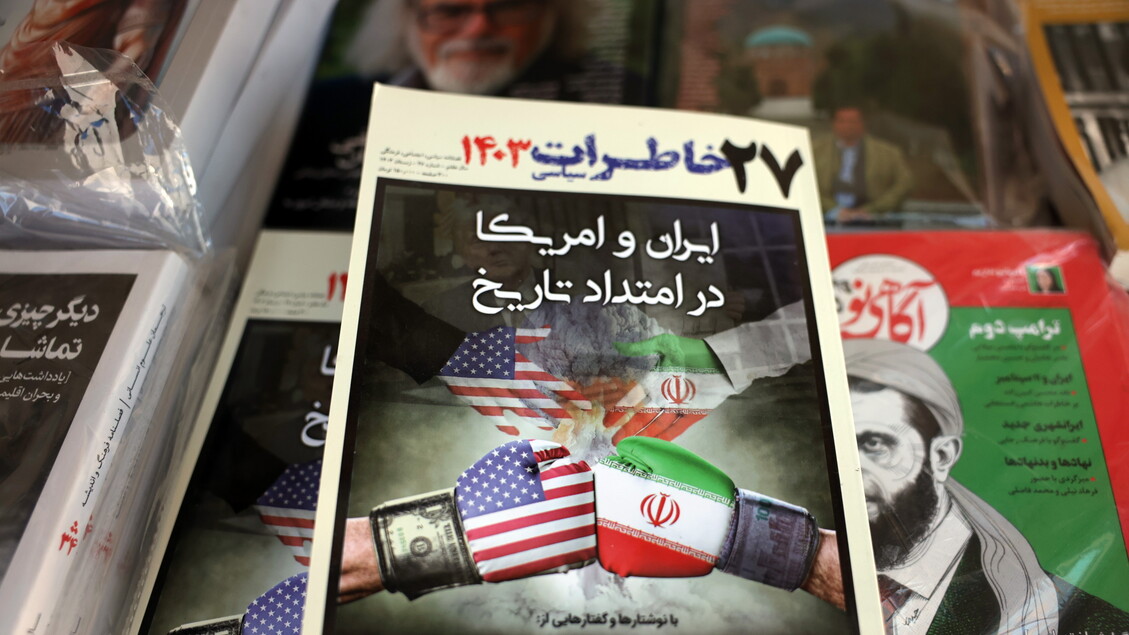The United States and Iran are preparing to restart indirect nuclear negotiations this Sunday in Muscat, Oman, according to Iranian Foreign Ministry spokesman Esmail Baghaei. The session will mark the sixth meeting since April 12.
On the American side, President Donald Trump signaled that face-to-face discussions could begin as early as Thursday. “A reasonable offer has been delivered to Iran,” Trump said, adding, “We’re expecting a response in the coming days.” His remarks followed a 40-minute phone call on Monday with Israeli Prime Minister Benjamin Netanyahu, whose office relayed the message.
According to Israeli sources, Trump assured Netanyahu that Washington is committed to a further round of negotiations over the weekend. No information has been released regarding any specific requests made by Netanyahu, who reportedly paused his testimony in a corruption trial to engage with the White House.
But the diplomatic overtures come as the International Atomic Energy Agency issued a scathing assessment of Iran’s transparency. Speaking to the IAEA Board in Vienna on Monday, Director General Rafael Grossi said Tehran continues to withhold credible explanations about the presence of uranium particles at undeclared sites, including Varamin, Marivan, and Turquzabad.
“Iran has either failed to respond or provided technically implausible answers,” Grossi told the agency, accusing Iranian authorities of attempting to “sanitize” the sites and impede inspections. “We are not in a position to guarantee that nuclear material at these locations remains under IAEA safeguards,” he warned.
Grossi also disclosed that Tehran had gained access to confidential IAEA documents. “We know for certain that some internal IAEA files ended up in Iranian hands. This is a serious breach and runs counter to the spirit of cooperation,” he said.
Iranian intelligence also claims to possess files related to alleged Israeli nuclear activity. According to Grossi, the documents appear to concern the Soreq Nuclear Research Center, which has been inspected by the IAEA but is not part of Israel’s strategic weapons infrastructure. “There’s a common misconception that we don’t inspect Israel. In fact, we have jurisdiction over Soreq, and inspections take place,” he said.
Despite the clarification, Iranian Intelligence Minister Esmail Khatib vowed that the documents “will be made public soon.” Israeli analysts have dismissed the announcement as a psychological operation.
Meanwhile, tensions within Israel’s governing coalition are surfacing alongside the international talks. Netanyahu has convened top security officials and political allies — including Itamar Ben Gvir, Bezalel Smotrich, and Aryeh Deri — in an effort to shore up a government increasingly strained by disagreements over military service exemptions for the ultra-Orthodox Haredi community.
According to Israeli media, Netanyahu has tasked Mossad chief David Barnea and Strategic Affairs Minister Ron Dermer with holding preliminary talks with U.S. special envoy Steve Witkoff ahead of Sunday’s summit with Iranian negotiators. American Ambassador Mike Huckabee has also reportedly engaged in quiet diplomacy with ultra-Orthodox leaders to help stabilize the fragile coalition.
At the White House, Trump underscored the urgency of a deal. “We’re trying to prevent destruction and death. But they are tough negotiators — sometimes too tough. The problem is, they won’t give up enrichment,” he said.
Trump reiterated that uranium enrichment remains a non-negotiable red line. “We’re not going to allow it. If they keep going down that road, we’ll have to do things differently.” Asked what was holding up the talks, he replied: “They’re asking for unacceptable things. And I told them that.”
According to Axios, Trump has also warned Netanyahu against launching a preemptive strike on Iranian nuclear facilities, fearing such a move could derail ongoing diplomacy.
Speaking to i24News, Grossi said that an Israeli attack on Iranian nuclear infrastructure could lead Tehran to exit the Non-Proliferation Treaty — or even accelerate efforts toward developing a nuclear weapon. “That’s what they told me directly,” he said.
A classified IAEA report circulated in May estimates that Iran now holds enough fissile material to produce up to nine nuclear bombs, although enrichment levels remain below the 90% threshold required for weaponization.












